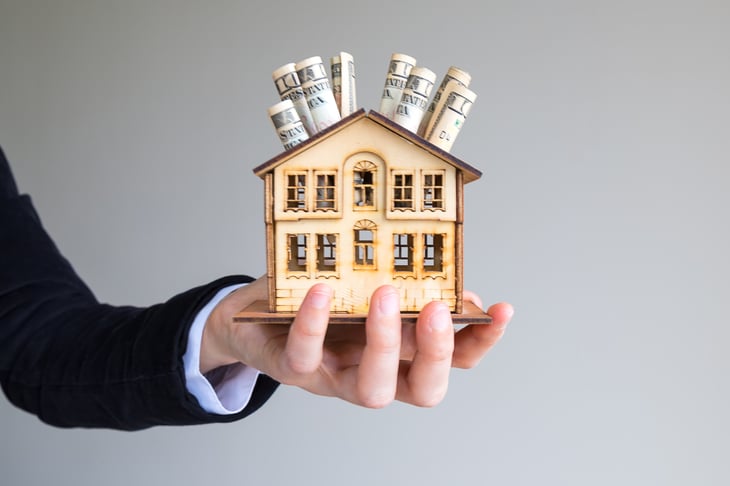
Editor's Note: This story originally appeared on Point2.
Real estate comes with a language of its own. One phrase you’ve probably heard from time to time is home equity.
If you’re not exactly sure what it means, you’re not alone. Let’s take a closer look at home equity and how you can make the most of yours.
Following is a look at what makes equity go up and down, and tips for building equity in your home.
How Home Equity Works

If you own a home, you’ve almost certainly got at least a little equity in it. As a homeowner, equity is basically the value of your home minus what you owe on your mortgage loan.
It’s your financial stake in your home, and with each mortgage payment, it increases. Home equity is considered an asset and makes up a portion of your net worth. While it’s not necessarily a liquid asset, you can tap into it if necessary. There are two main ways to go about this: using a home equity line of credit (HELOC) or refinancing your mortgage.
Either method can transform your equity into hard cash without selling your home. This can be ideal for anything from buying a second property or carrying out renovations to paying off unexpected costs, such as medical bills.
If you buy a $300,000 home with a 20% down payment, you’ll have a mortgage of $240,000 and $60,000 in equity. The lender doesn’t own the remaining percentage of your home. Instead, the property is used as collateral if you default on your loan.
Home Equity Increases

With each mortgage payment, your equity gradually increases as your loan value drops. But, if there’s a sudden upturn in the local market and your property rises in value, your equity will also increase. For example, if your $300,000 home somehow doubles in value the day after you get the keys, your equity will grow from 20% to 60%.
This is because your loan value will remain the same ($240,000), but your equity will now be $360,000 rather than $60,000. In reality, it’s unlikely that your home value will increase so much so rapidly, but it certainly can grow.
Home Equity Decreases

As property prices can rise, they can also fall, which will also have an impact on your equity. For example, if the value of your home drops from $300,000 to $260,000, and you have a mortgage of $240,000, your equity will drop from 20% ($60,000) to about 8% ($20,800).
In the worst-case scenario, you can end up with negative equity. This is when your home is worth less than the mortgage you took out on it. For example, if you buy a house for $300,000 with a mortgage of $240,000, and the value drops to $200,000, you’d be in negative equity.
Tips for Building Equity in Your Home

Besides paying off your loan and hoping that property prices will increase, there are other ways to build equity in your home.
- Budget for a large down payment: Don’t own a home yet? Plan for a larger down payment rather than the smallest amount you can. This way, you’ll owe less on the mortgage, and with a down payment of 20% or more, you’ll avoid private mortgage insurance (PMI).
- Take out a low-interest loan: The lower the interest, the more equity you build with each payment. A high credit score and decent down payment will help you get the best rates.
- Change to bi-weekly mortgage payments: This way, you’ll make 13 full payments per year rather than 12.
- Refinance your mortgage: If you’re on a 30-year mortgage, you can refinance and opt for a shorter-term loan. The monthly payments will increase, but you’ll be paying lower interest rates.
- Renovate your home: Do your research and make desirable renovations that are more likely to see your house price rise rather than expensive remodels that won’t make much difference.
- Put windfall cash into your home: From work bonuses and tax rebates to winning lotto tickets and an unexpected inheritance, these surprise cash injections can be ideal for building equity. And most lenders will allow you to make lump sum payments at least annually.





Add a Comment
Our Policy: We welcome relevant and respectful comments in order to foster healthy and informative discussions. All other comments may be removed. Comments with links are automatically held for moderation.